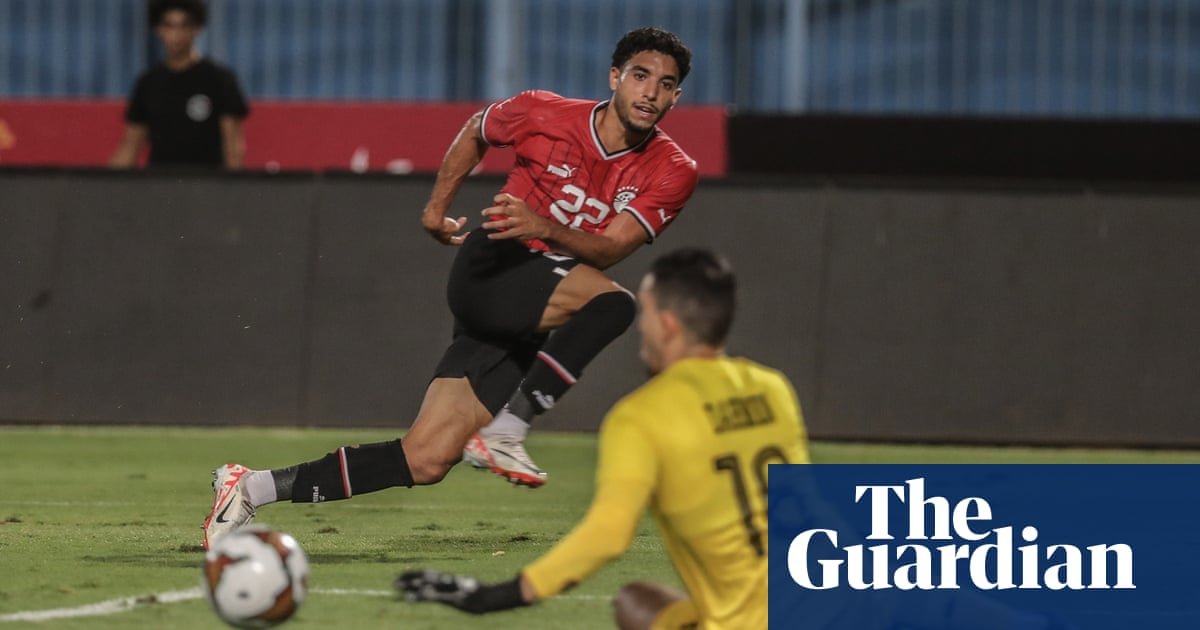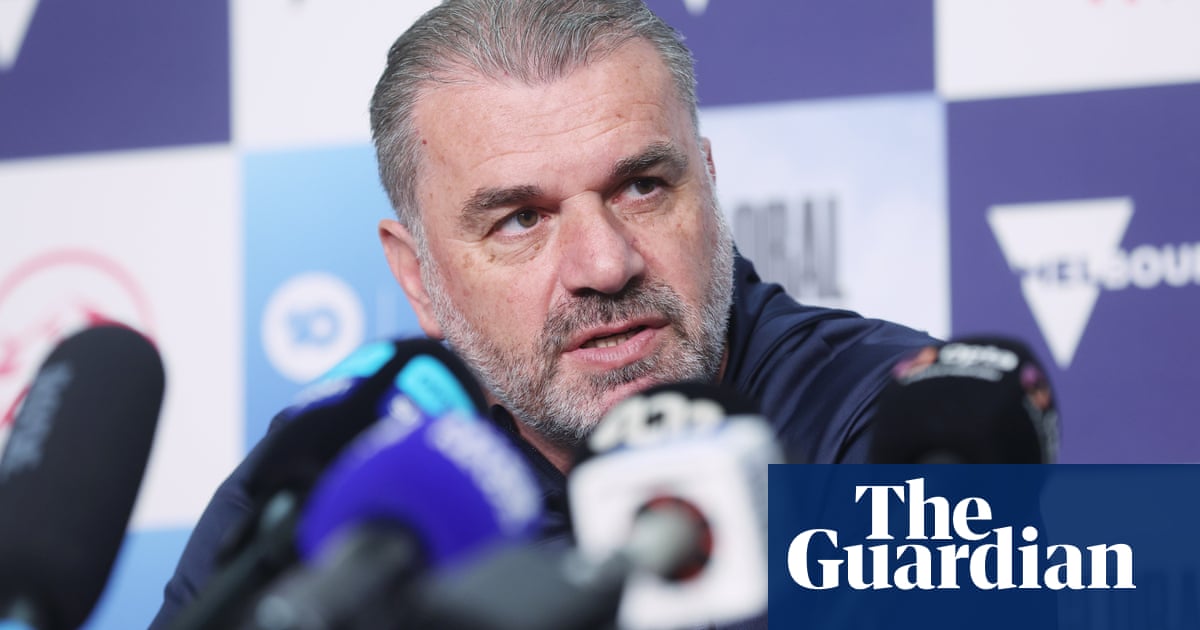
After four months as Red Bull Salzburg’s head coach Pepijn Lijnders has experienced a wide range of emotions. Jürgen Klopp’s former Liverpool assistant won six and drew two of his first eight games but has since overseen a challenging period that has included three heavy defeats. Not that it has lessened his determination. This job has, after all, been a long time in the making.
From the moment it was announced in January that Klopp and Lijnders would leave Anfield at the end of the season, the Dutchman was open to offers and a few clubs were invited to his house in Formby to explain their ideas. Salzburg were among them and it was not their first attempt to lure him.
“They had shown an interest the summer before and [this year] soon the choice was clear in my head that I wanted to go to Salzburg,” the 41-year-old says. “What appealed to me was their academy, football philosophy and the idea to start an adventure in a new country, with a new language and new people.”
Lijnders, who had been instrumental in helping youngsters such as Trent Alexander-Arnold settle in Liverpool’s first team, wanted a club where the focus was on drafting in youth. But Salzburg told him he could also add certain elements to their pressing style.
“I’m also a strong proponent of high intensity and counterpressing but I also have a very clear idea how we want to play with the ball,” he says. “We went through a similar development at Liverpool, where opponents increasingly adapted themselves, which meant you had to look for solutions with the ball. Salzburg made it clear they wanted to develop their game with the ball, so that was the task. And that’s what we are currently trying to do, without losing track of the pressing.”
A year earlier Lijnders had chosen to stay with Klopp at Liverpool. “We had just come off a tough season, although we won seven of the last nine games, which qualified us for the Europa League,” he says. “That summer we said to each other to do another season and then to make our minds up in January. But soon it became clear that this was going to be our last season, and that decision came in a period where things were actually going really well.”
It meant leaving two years before their contracts were due to expire. “Jürgen was looking for a sabbatical, to have real time for family and friends, and for me it felt the right moment to become head coach, so that coincided well.” They thought about announcing the news in December but informed the world a month later. “We didn’t want to spoil the Christmas of the Liverpool fans,” Lijnders jokes.
He and Klopp are due to cross paths again soon, the German having been appointed by Red Bull as its global head of soccer. From January Klopp will advise its clubs on playing philosophy, transfer strategy and coaching development.
“I’m very happy for Red Bull they have been able to sign Jürgen because he has been such an icon as manager,” Lijnders says. “He will provide those clubs with a very strong identity in terms of playing style, leadership and humanity.” Lijnders emphasises that Salzburg are their own club and make their own decisions, but says his relationship with Klopp will not really change anyway. “We will always be close to each other; he will always be there to reach out with a helping hand and to give advice.”
At Liverpool Klopp was very open to Lijnders’ ideas and it created a deep mutual trust. “He’s someone who knows me inside out; he knows exactly what’s going on and how I’m feeling,” Lijnders says. “He’s someone with so much experience and knowledge. If I need him, I can always give him a call.”
Recent weeks have been testing for Lijnders, with three defeats, two wins and one draw in the past six games. Salzburg lost to Sparta Prague and Brest in the Champions League after coming through two qualification rounds and were beaten 5-0 by Sturm Graz in their most recent match, in the Austrian Bundesliga.
“To qualify for the Champions League was a big success but it creates a massive challenge as well for our young squad,” says Lijnders, whose team host Dinamo Zagreb next Wednesday. He says the group are “very eager to learn and full of talent” but that injuries to players such as Maurits Kjærgaard, Aleksa Terzic and Daouda Guindo have taken a toll.
Games coming thick and fast meant Lijnders did not have much time for training, but he sees light at the end of the tunnel. “Luckily we have almost everyone back and this week we have been training well,” he says. To instil patterns Salzburg’s players are subjected to specific exercises and drills. Lijnders explains them and the ideas behind them. “Every week we do counterpress rondos, where three teams of three players play a six-versus-three game. The team which loses the ball has to get in the middle and becomes the chasing pack. That drill is about responsiveness.
“We also do seven-versus-six games, so-called identity games, which are played over the length of the pitch and where each team defends the halfway line. I always have one team which has one player less, because that requires better coordination between them, while they have to reach a higher concentration to play the press and when they are in possession they have to be better with the ball as well.”
In 2018 he switched from Liverpool to take the helm at NEC in the Dutch second tier, but was sacked – and returned to Merseyside – when they failed to win promotion to the Eredivisie. This time, the transition from assistant to head coach felt natural, Lijnders says. “I have waited long to make this step and I really enjoy it. I love coaching and I really like to be on the pitch every day. That is the beauty of this job, to help players improve and make the team better.”
There is continuity as well as difference. “At Liverpool I was also preparing and executing training sessions, so there I also felt responsible for how the team was playing. In that sense it’s very similar to what I’m doing here. I like having the sole responsibility now, though, and making all the decisions, knowing it falls on my shoulders instead of someone else’s.”
Last season Lijnders experienced winning a trophy with a young team when a Liverpool side full of academy players secured the Carabao Cup. “It was a dream come true. To play a final at Wembley with homegrown talent was fantastic, with the fans going wild and cheering us to victory during extra time.”
Lijnders is happy to see Liverpool have continued their positive trajectory under Arne Slot but says he played no part in his compatriot getting the job. He knows Slot well and feels the 46-year-old is well suited. “Arne knows exactly what he wants and that’s his strength. He’s doing an amazing job. And it’s great to see that the group is still so hungry and showing its potential to keep developing.” He sees similar virtues at his Salzburg team. Now he hopes to reap the rewards of the seeds he has sown.












